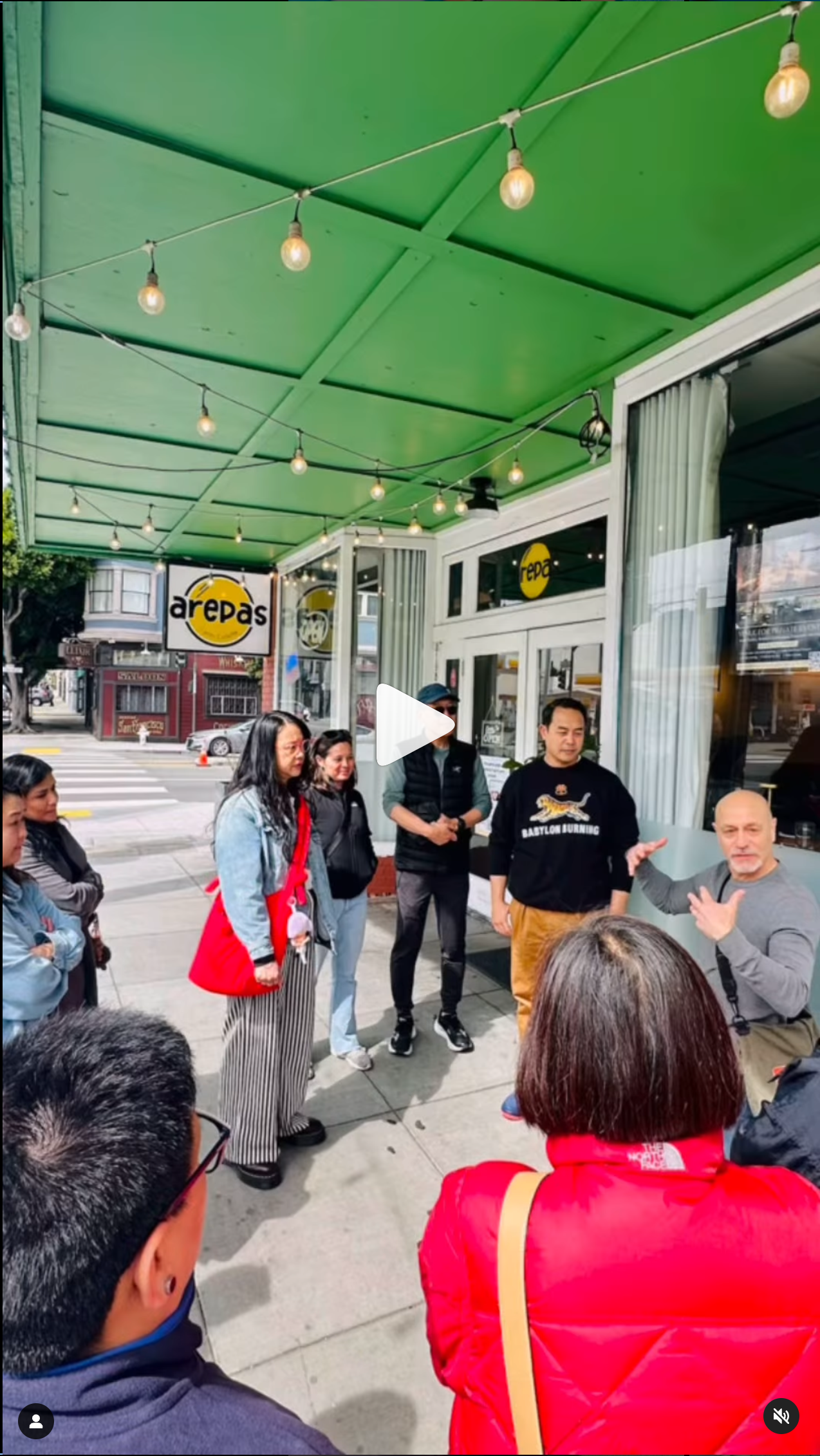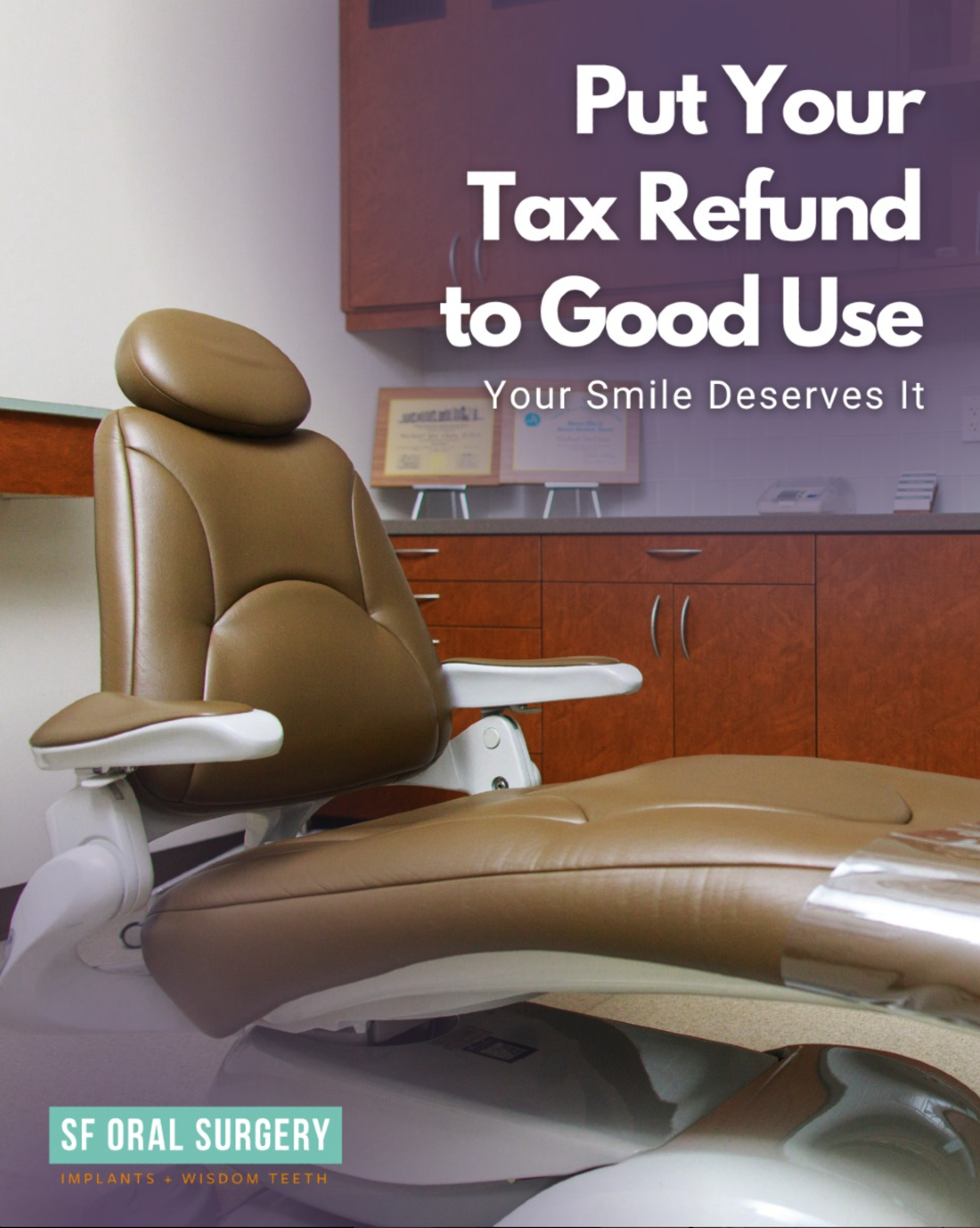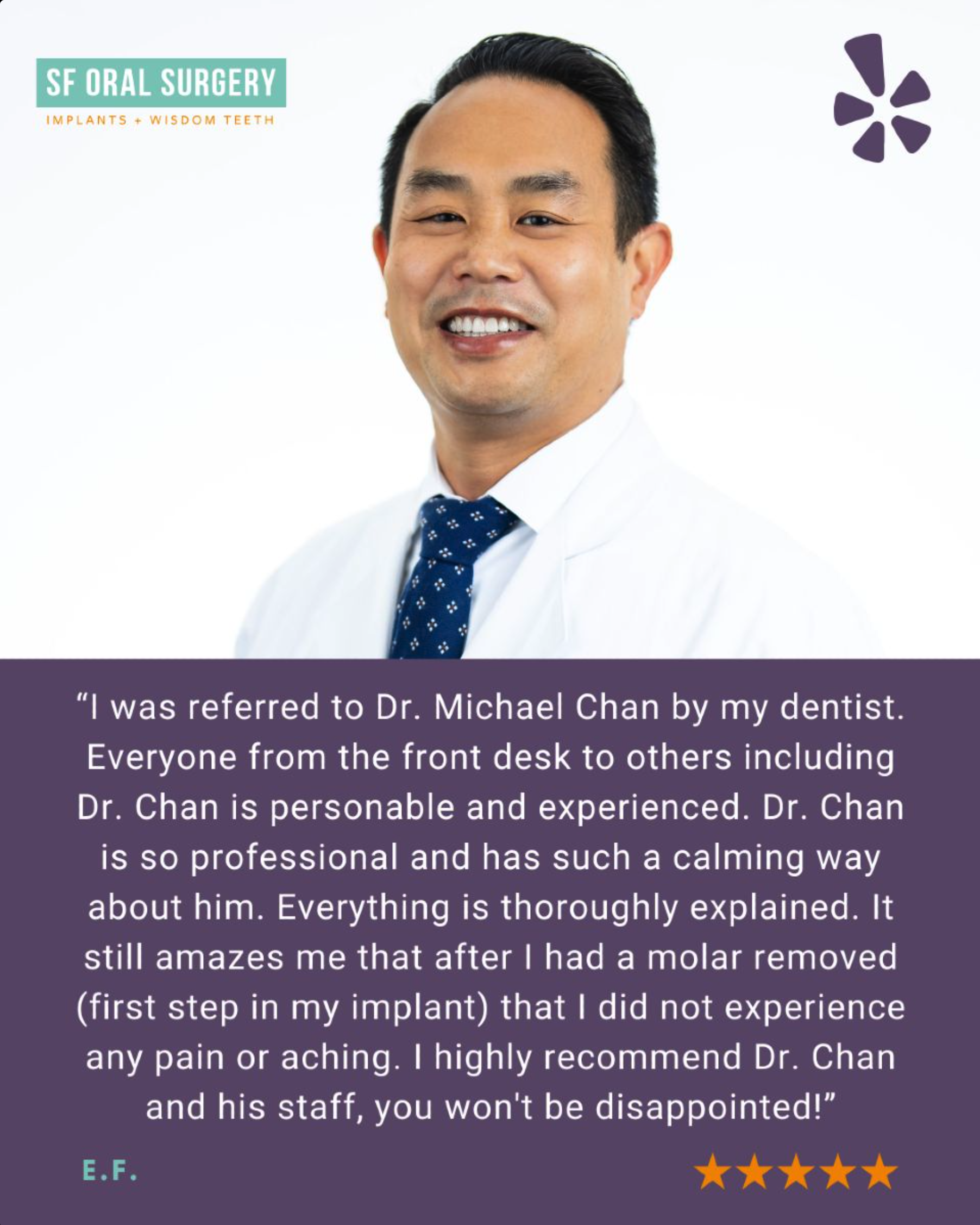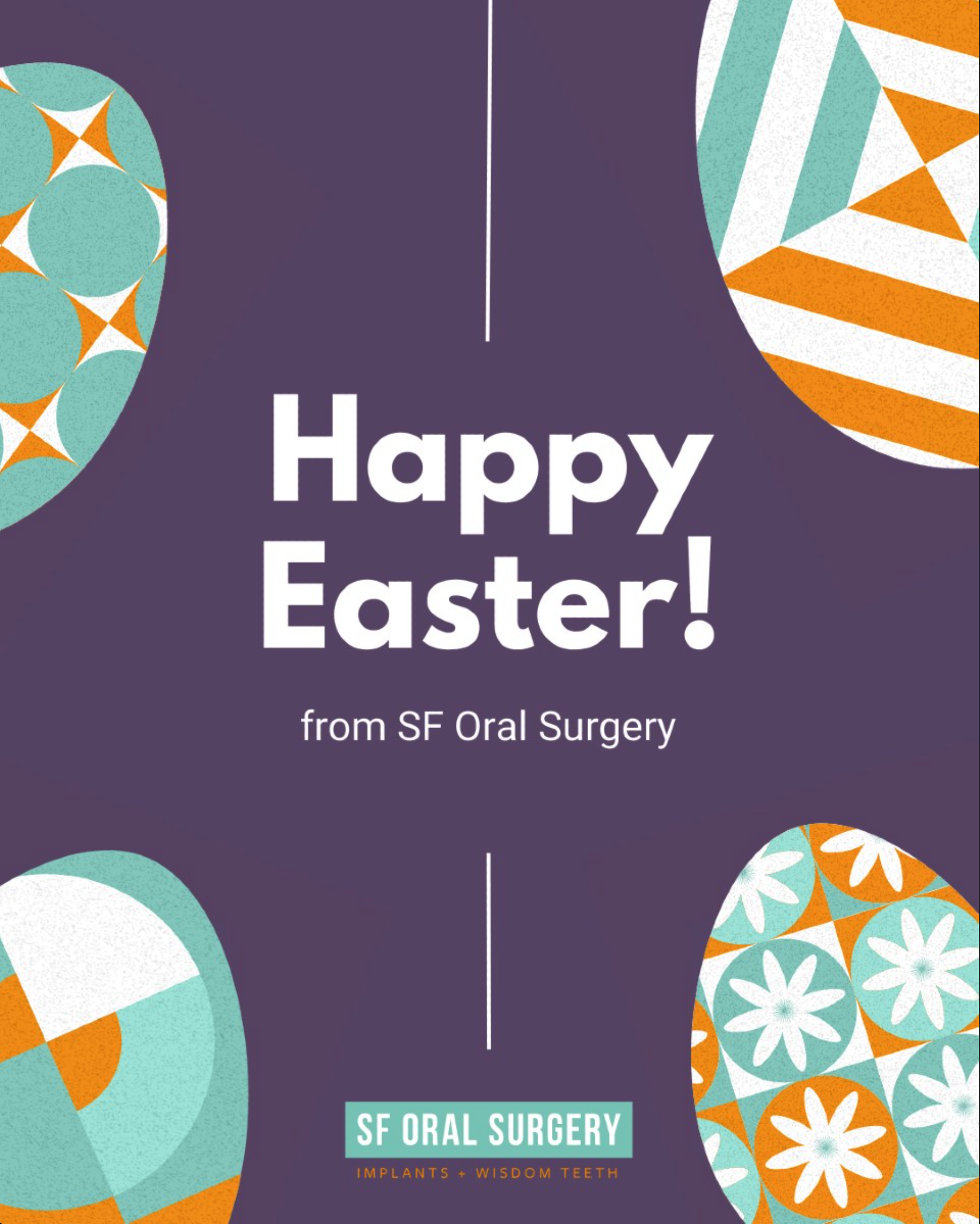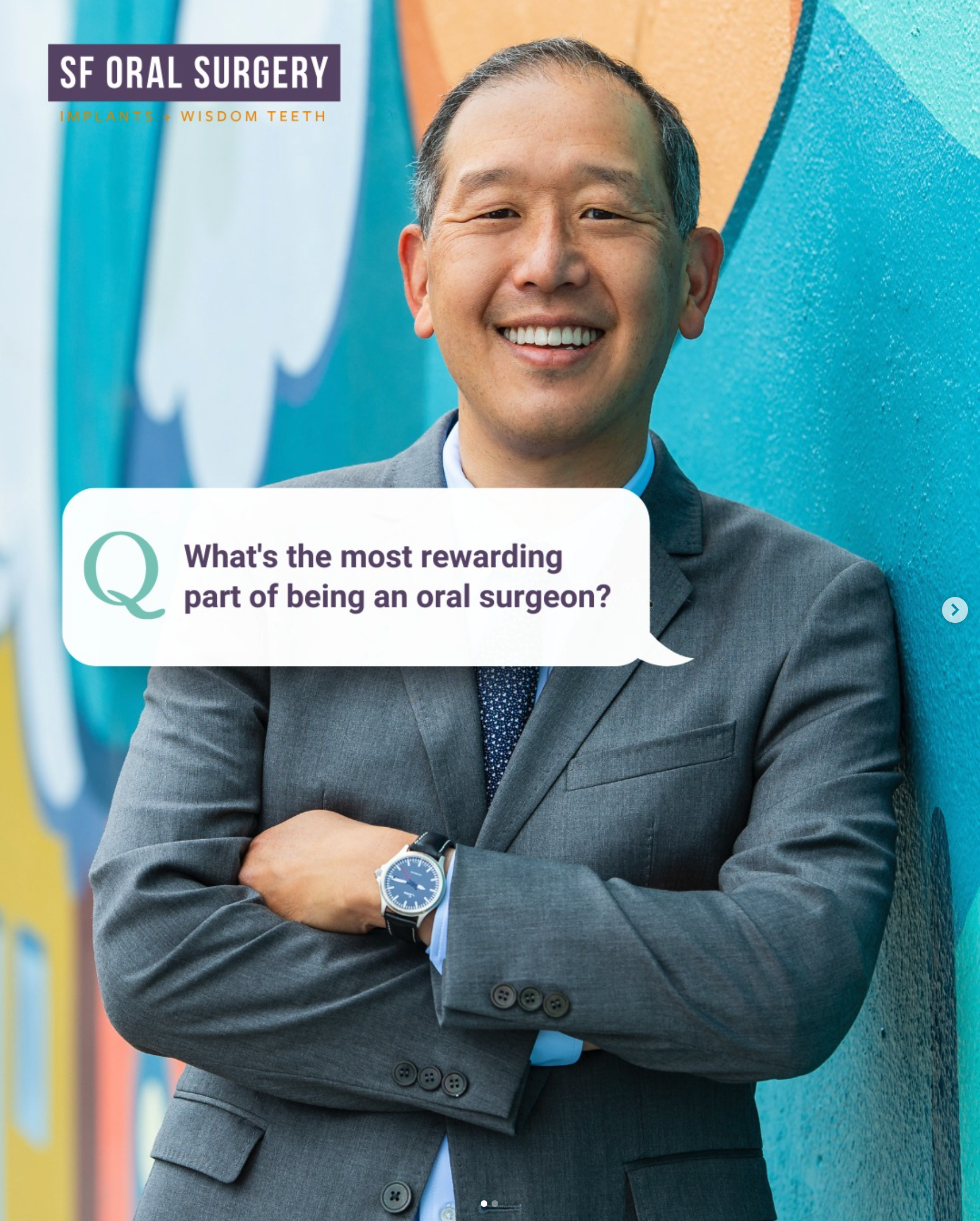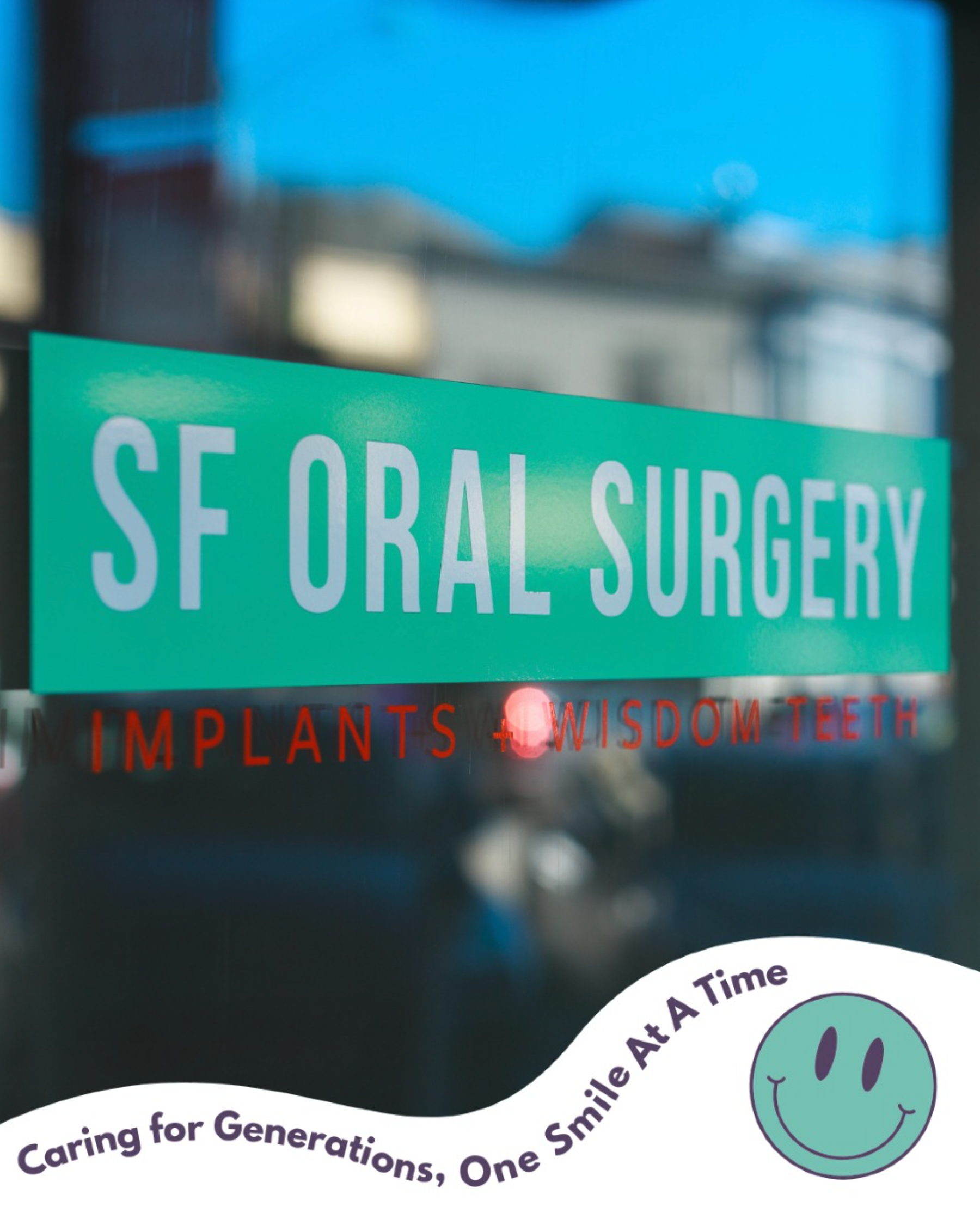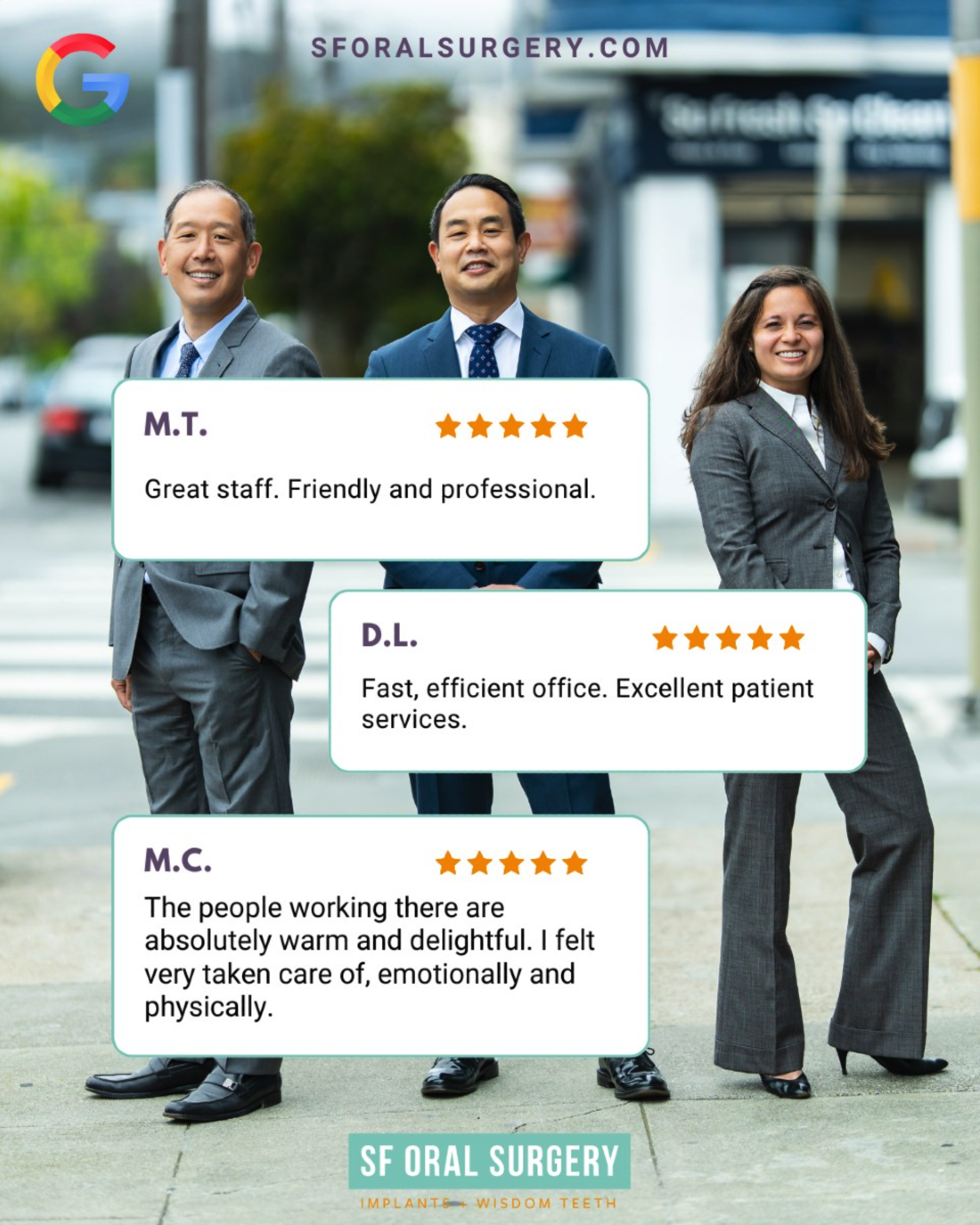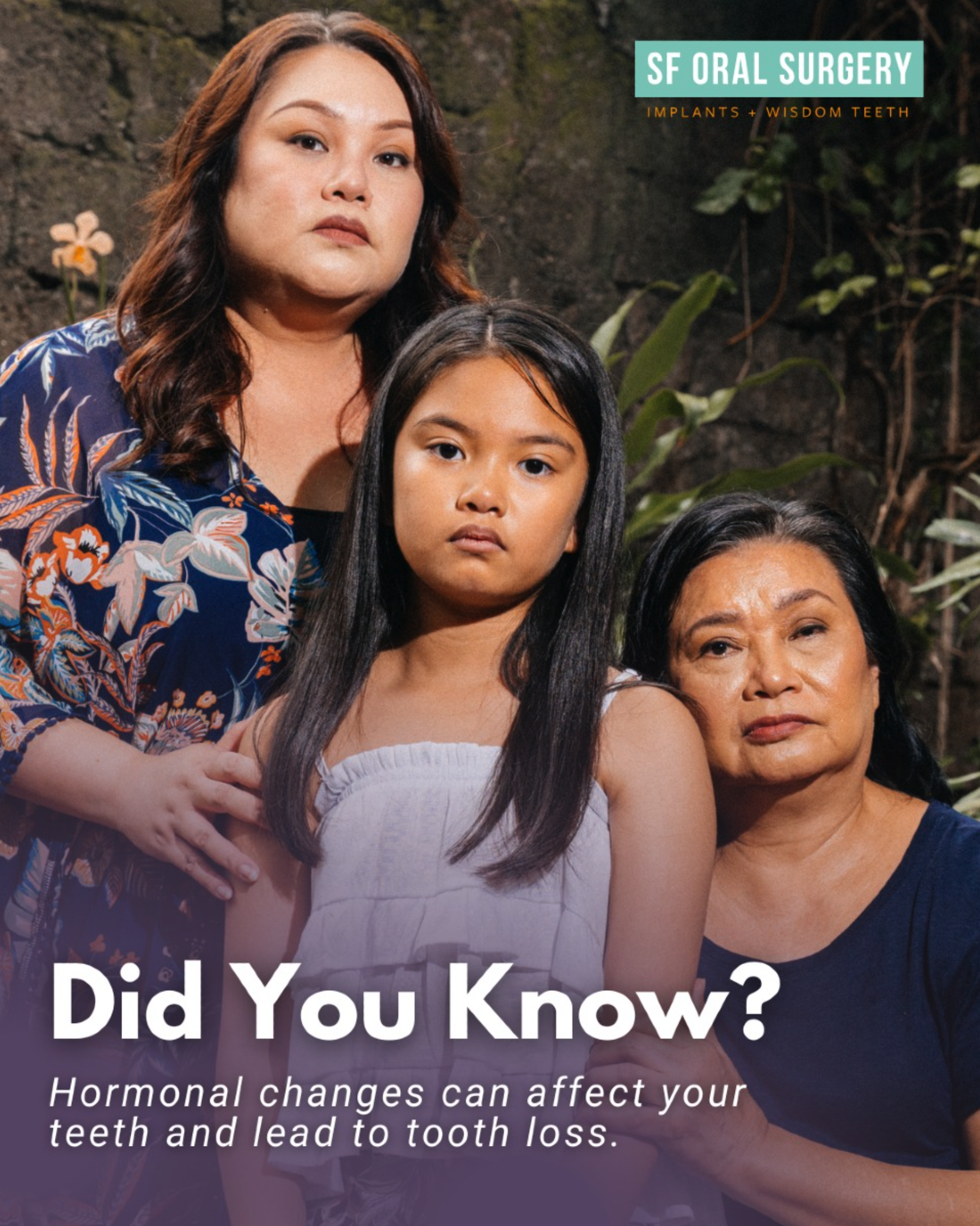If you have pain or tenderness in your gums or jaw, frequent headaches, bad breath, and swelling, you may have an impacted tooth. Typically, teeth emerge from the gums as you age. However, some teeth may not break through, instead remaining embedded in the gums or jaw bone.
Don’t wait to respond to these symptoms if you think you need impacted tooth treatment. Delaying can affect your health, leading to:
- An abscess in your gums.
- An infection that has the potential to spread.
- Misaligned teeth.
- Plaque buildup, gum disease, and bone loss.
Learn more about how SF Oral Surgery treats impacted teeth. Then, get in touch to discuss your symptoms and options for care.
Identifying an Impacted Tooth
If you are visiting your general dentist on a regular basis, he or she will hopefully identify the impacted tooth as part of your checkups. Be sure to tell your dentist about any of the symptoms you’ve been experiencing during these visits.
Dentists may recognize impacted teeth based on swollen tissue over an area where a tooth hasn’t fully emerged. Often, they see other signs, like mouth sensitivity. Based on these findings, they typically take X-rays to establish whether there is a tooth that hasn’t emerged.
For dentists in San Francisco, impacted wisdom teeth (third molars) are a common occurrence. Your dentist should know to track the progress of your wisdom teeth (or your child’s teeth) as part of healthy development. If they haven’t emerged as expected, it’s a good sign that you require additional treatment.
At this point, your dentist may recommend removing the impacted tooth. This is often the first introduction that patients have to SF Oral Surgery. Many Bay Area professionals refer their patients to us for tooth extraction because of our expertise in these types of procedures.
San Francisco Impacted Tooth Surgery
Before your procedure, SF Oral Surgery will talk with you about what to expect and answer any questions that you have. We will also conduct an examination and may take additional X-rays. Typically, we will discuss sedation options as well. Our oral surgeons are well-trained in anesthesia practices, and we will make a plan that ensures your comfort.
In the extraction:
- You receive sedation so that you feel no pain in the process.
- Your oral surgeon incises the area around the impacted tooth.
- He/She removes the tooth as a whole or in parts.
- He/She closes the site with stitches.
Most patients manage any discomfort during recovery with medication that we prescribe. Our staff and doctors make themselves available to you so that we can support you with any concerns that come up as you recuperate. It’s all part of our effort to provide total care at every step in the process.
If you think you have an impacted tooth, call SF Oral Surgery’s San Francisco office at (415) 776-6710 to schedule an initial consultation.
